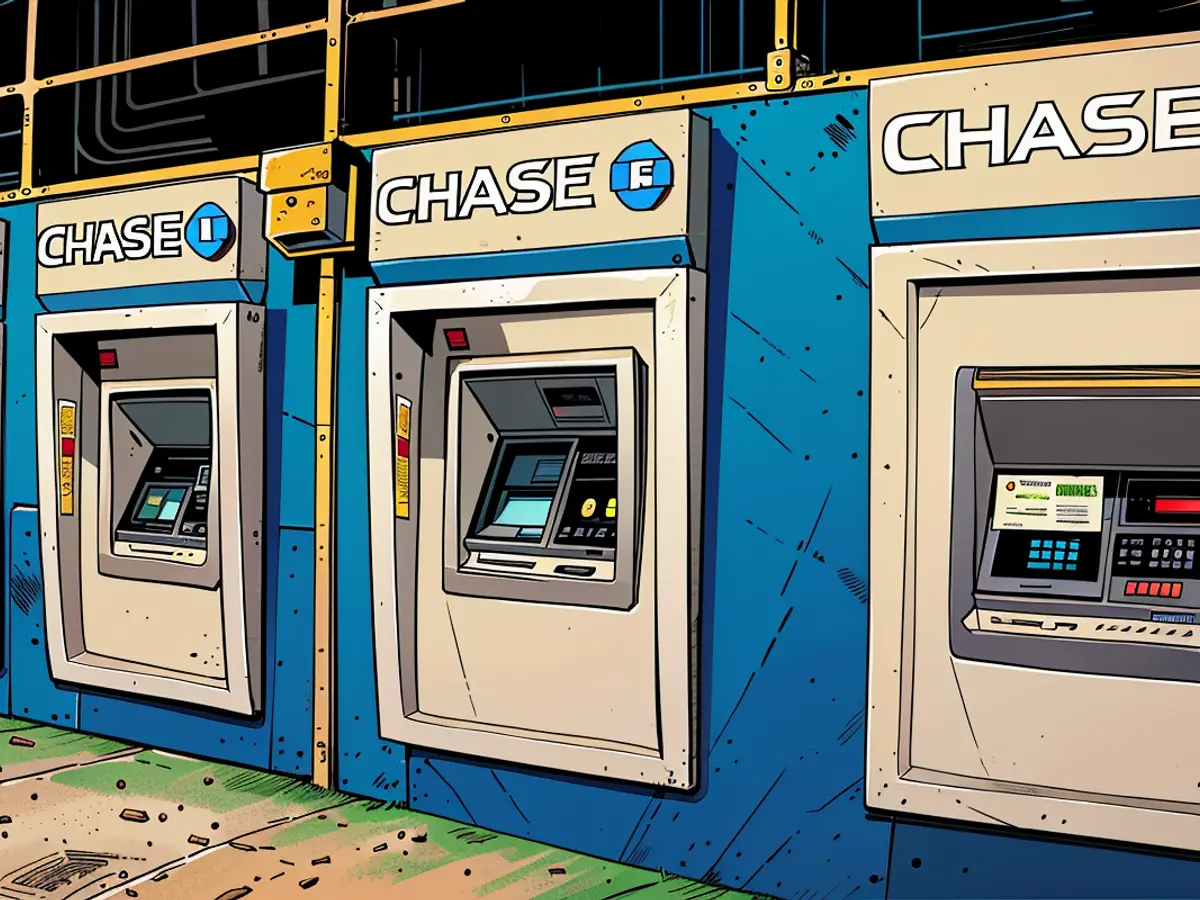Uncovered Incident at Chase Bank: Deliberate Check Forgery Instead of Reported 'Technical Error'
Over the weekend, a so-called "Chase Bank technical issue" became popular on social media, but it wasn't a bug, it was simply an instance of bank fraud using personal checks.
Some TikTok videos led individuals to believe they could get free money from Chase ATMs by writing fake checks to their own accounts and withdrawing the "deposited" funds before the checks were verified. Chase has since issued a statement clarifying that exploiting a typical banking system delay to withdraw more money than is actually in your account is, in fact, a form of check fraud.
In short, TikTok is a constant source of misguided financial advice. Let me explain how the scam worked and provide some tips to avoid getting involved in such schemes.
What was the Chase Bank technical issue?
On this particular weekend, I spent more time than usual on TikTok, observing users attempting bank fraud under the guise of taking advantage of a supposed banking "problem" or "glitch." This was actually just a standard banking practice that permits check depositors to access a portion of their funds before the entire check amount is verified.
In this case, people posted videos of themselves writing checks for huge sums of money, depositing them into their own accounts, and then withdrawing as much as possible before the check was returned as invalid.
Chase released a statement announcing that they had resolved the system delay and clarified that the trend was an example of simple bank fraud, stating, "Regardless of what you might see online, depositing a fraudulent check and withdrawing the funds from your account is fraud, plain and simple."
Many individuals who took advantage of the delay to obtain cash now find themselves with locked accounts and negative balances. Since the money was acquired through fraudulent means, the bank will demand it back—and keeping it would be illegal.
How to identify bad financial advice on TikTok
Even though you may not have fallen for this most recent form of bank fraud, there's a scam waiting for everyone. Therefore, it is essential to learn to recognize these schemes. As I've previously advised, before you trust the financial suggestions of a social influencer, consider the following questions about the advisor.
- What are their qualifications? Although there's no legal requirement to become a "finance expert," seek out individuals with certifications such as CPAs (Certified Public Accountants) or RIAs (Registered Investment Advisers). Be cautious of anyone who has gained wealth and is trying to influence others, as their tips may not be reliable.
- Does this advice seem too good to be true? Generally, avoid "get rich quick" investment advice. If it was actually feasible, why would this person be sharing it with millions of people? Before trusting an Instagram infographic promoting an effective investment strategy, conduct your own research.
- Is this person trying to sell you something? This is the most crucial factor to consider before considering someone's financial advice. Be careful about purchasing certain products or stocks, especially if the recommender is someone you don't know well and who stands to gain financially from your decision. In the end, nobody is looking after your finances out of kindness if they can make a profit from selling you something.
Following the Chase Bank technical issue misconception, individuals who attempted to withdraw money using fake checks and the bank's delay policy found themselves facing locked accounts and negative balances. Chase later released a statement condemning the practice as check fraud, emphasizing that withdrawing funds from an account with a fraudulent check is illegal.
Given the constant flow of misguided financial advice on TikTok, it's essential to scrutinize any investment tips, considering factors such as the advisor's qualifications, the credibility of the advice, and potential conflicts of interest.








